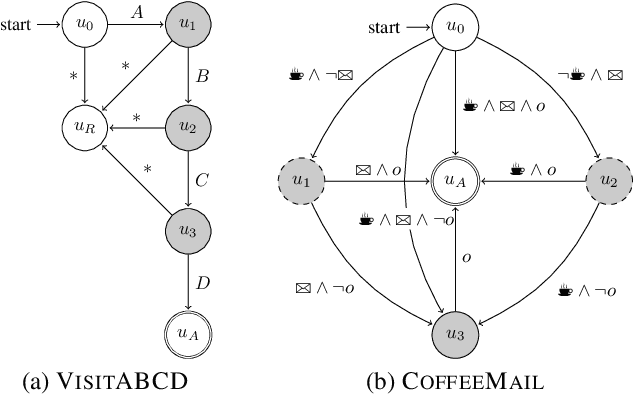Induction of Subgoal Automata for Reinforcement Learning
Paper and Code
Nov 29, 2019



In this work we present ISA, a novel approach for learning and exploiting subgoals in reinforcement learning (RL). Our method relies on inducing an automaton whose transitions are subgoals expressed as propositional formulas over a set of observable events. A state-of-the-art inductive logic programming system is used to learn the automaton from observation traces perceived by the RL agent. The reinforcement learning and automaton learning processes are interleaved: a new refined automaton is learned whenever the RL agent generates a trace not recognized by the current automaton. We evaluate ISA in several gridworld problems and show that it performs similarly to a method for which automata are given in advance. We also show that the learned automata can be exploited to speed up convergence through reward shaping and transfer learning across multiple tasks. Finally, we analyze the running time and the number of traces that ISA needs to learn an automata, and the impact that the number of observable events has on the learner's performance.
 Add to Chrome
Add to Chrome Add to Firefox
Add to Firefox Add to Edge
Add to Edge